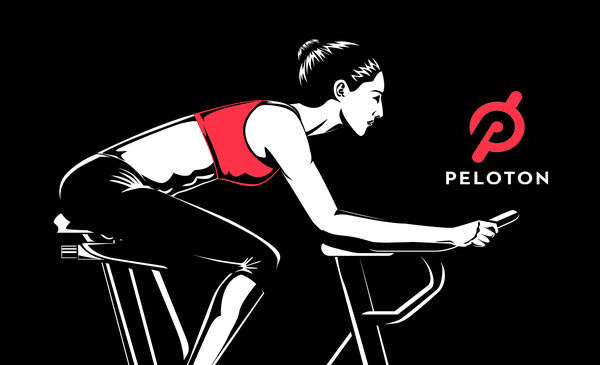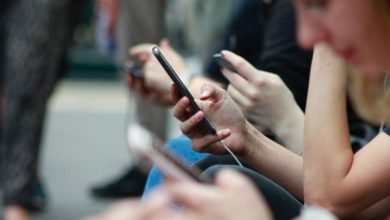[ad_1]

The underlying driver of trends and consumer behaviors has been ongoing and strengthening tension between individuality and inclusion. Before Coronavirus, we wanted to maximize our individuality while at the same time we wanted to maximize belonging to a demographic group, a group with common interests, a group with shared values, a local community, a club, and so on. We refer to this motivating optimization of individuality and inclusion as the Age of I.
Coronavirus has altered this landscape: it has upended and recreated a new values mind-set. This alteration has major implications for business. As we settle in for the long haul of the Covid-19 pandemic, our motivators have morphed into a revised Age of I: isolation and inclusivity. These two conflicting desires are the need to be isolated and the need to belong. This is changing the way we live. Successful businesses are leveraging the new tension of being apart and together at the same time – apart from family, friends, work, school – and still, more than ever, wishing to belong – to be a member, to be part of a group, to be social, to be connected. Our world is filled with Inclusive Isolationists.
Isolation has created some powerful trends: it is not necessarily a negative. Isolation has come to signal safety from Covid-19. Of course, being quarantined and shut-in away from others is terrible. But, isolation has helped us be more self-sufficient and creative. Businesses such as Home Depot and Lowe’s are winning as we are becoming handier when it comes to our living spaces. Meal kits, such as Hello Fresh and pioneer, Blue Apron, have enabled cooking from home as a cost-effective alternative to meal delivery. New entries such as Daily Harvest, fruit- and vegetable-based meals, are arriving offering holistic diversity to the meal kit category.
Delivery of goods and foodstuffs and streaming content brands are making isolation palatable. Brands such as Amazon Prime, Chewy.com, and Netflix address our fears of shopping in stores or going to the movies. These are subscription brands. Being a subscriber is different from being a belonger. A subscriber receives things on a regular basis; a belonger strives for affiliation and the social (or personal) values from being a member of a particular group bestowing recognition and possibly status.
For enduring profitable growth, don’t focus on just one part of the new Age of I – either isolation or inclusivity. Brands that leverage the intersection of both isolation and inclusivity will emerge from the pandemic stronger and with a more loyal base of customers.
Profits, Isolation And Inclusivity
Peloton is an example of a brand that is profitably optimizing the intersection of isolation and inclusivity. You may be biking or strength training at home, isolated from the collective energy of an in-person class but you also belong to a group, or personalized groups. For the isolated who are stressed out, there are meditation and yoga classes. Scroll down on the home screen and you will see a wide variety of groups to which you can belong: #peloton moms, #peloton dads, #Black Lives Matter, and #Power Zone Pack. On the pelobuddy.com/tribes website, there are dozens and dozens of different groups to which a member can belong, including instructor Peloton groups and teams.
In its recent quarterly earnings report (June 2020), Peloton told investors and analysts that its membership was now at 3.1 million: its IPO membership number from September 2019 was 1.4 million. According to the Financial Times, the increase in membership has led to its first quarterly profit, with revenue rising 172%. The brand is also rolling out new products and reducing the price of its standard bike and soon to be shipping a lower-priced treadmill.
Jumping into home fitness to compete with Peloton, Lululemon, the athleisure clothing brand-business, just bought Mirror for $500 million. Mirror is a tech-enabled mirror device delivering a wide variety of workouts. You see yourself and you see and hear from a trainer in the background who works with you.
MOOC (Mass Open Online Courses) such as Coursera addresses the tensions between isolation and inclusivity. Its online education is helping people learn skills while at home for a better career. It also offers courses to soothe the isolated soul as its popular classical music class via Jonathon Biss.
We did not choose to be isolated, but we are and we need to be. The effects of isolation are dramatic. Sociologists and behaviorists believe that many of the habits we developed during our isolation will remain. Brands that capture and optimize the benefits of both isolation and inclusivity have the upper hand. No one wants to trade off; no one wants “good enough.” No one wants to live only in isolation.
Gaming is another category that is leveraging the isolation-inclusivity mind-set. As pointed out by The Wall Street Journal, the competition is no longer who sells the most consoles. Now the gaming battle is focused on services: libraries of digital games held in the cloud. In its last earnings call, Microsoft reported that its Xbox Live membership had more than tripled.
The New York Times has a Sunday section called “Home” with a variety of interesting activities, things to do with your children, and recipes. This section helps its readers make it through another week of isolated living, activities that bring family members together enhancing a sense of belonging.
Brands are complex, multi-dimensional ideas. A uni-dimensional promise is not a pathway to enduring profitable growth. Especially today, in an uncertain world, good enough is not enough. We want brands to help us optimize both our need for the safety of isolation and our innate, compelling desire to belong.
Brands in this new Age of I require new ways of thinking and new actions. The goal of any brand is to satisfy customer needs profitably. We live in a transformative time where the strongest brands will promise and deliver the best ways to deal with our underlying, contrary desires.
Contributed to Branding Strategy Insider by: Larry Light, CEO of Arcature
The Blake Project Can Help You Differentiate Your Brand: The Brand Positioning Workshop
Branding Strategy Insider is a service of The Blake Project: A strategic brand consultancy specializing in Brand Research, Brand Strategy, Brand Growth and Brand Education
[ad_2]
Source link




